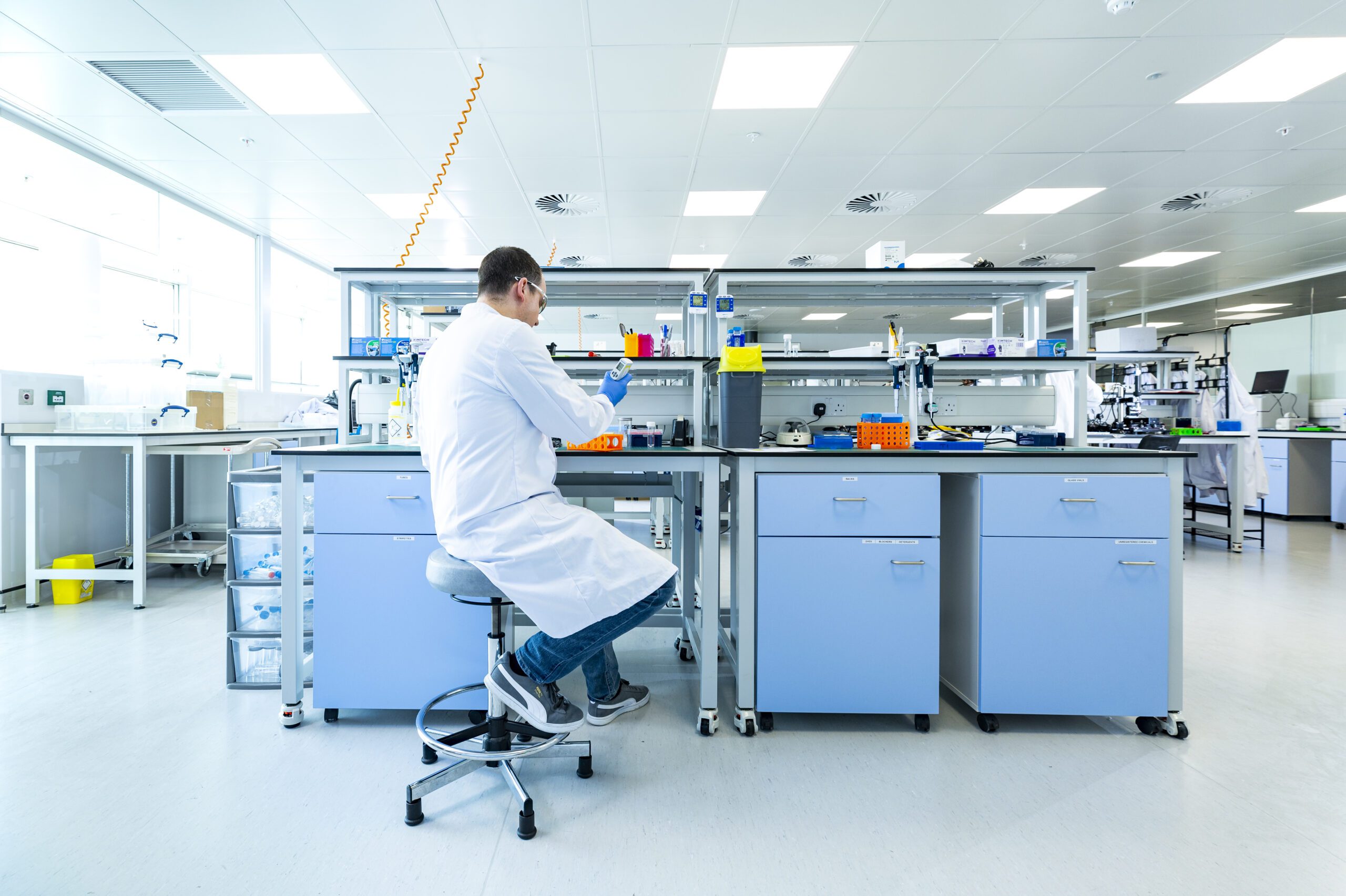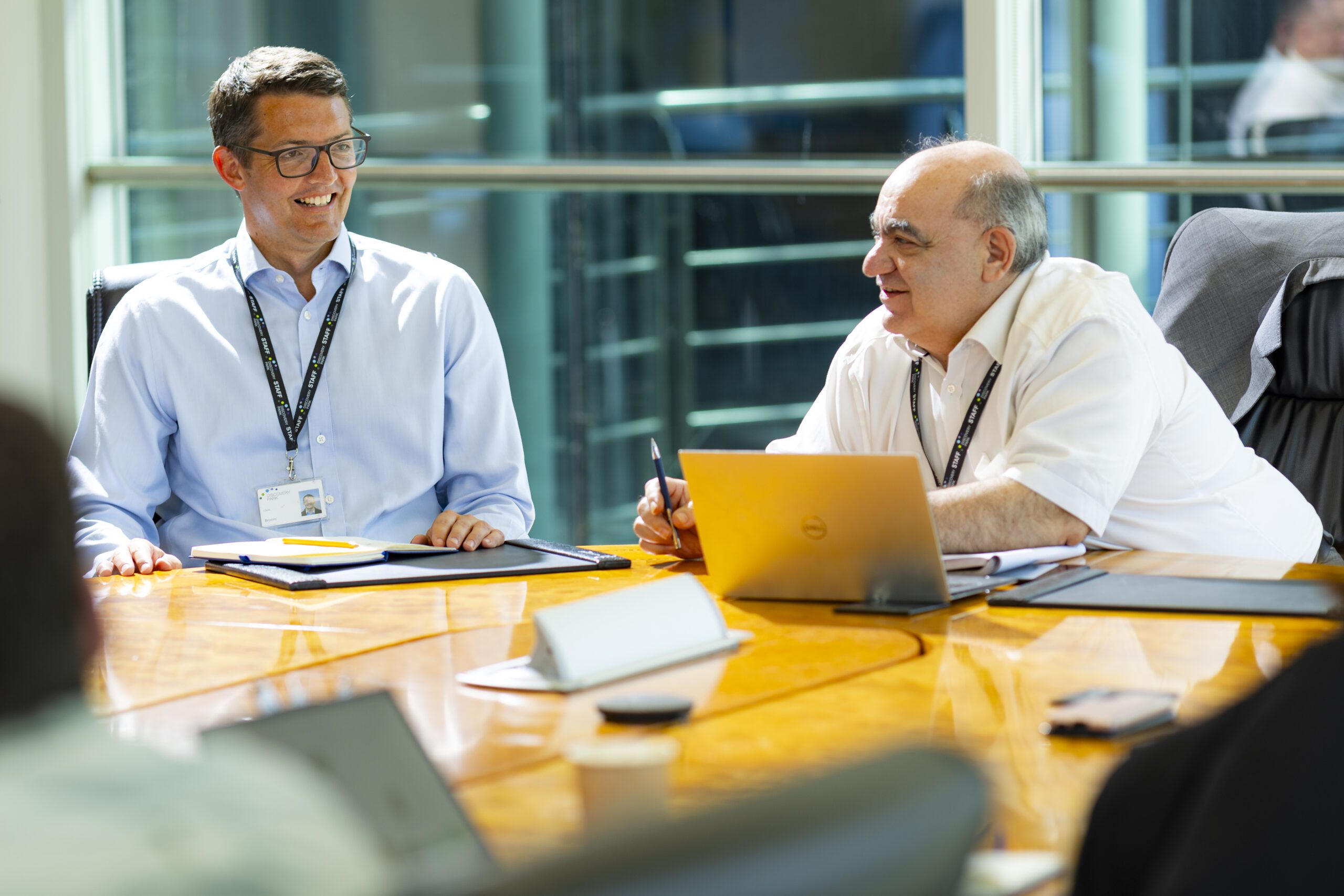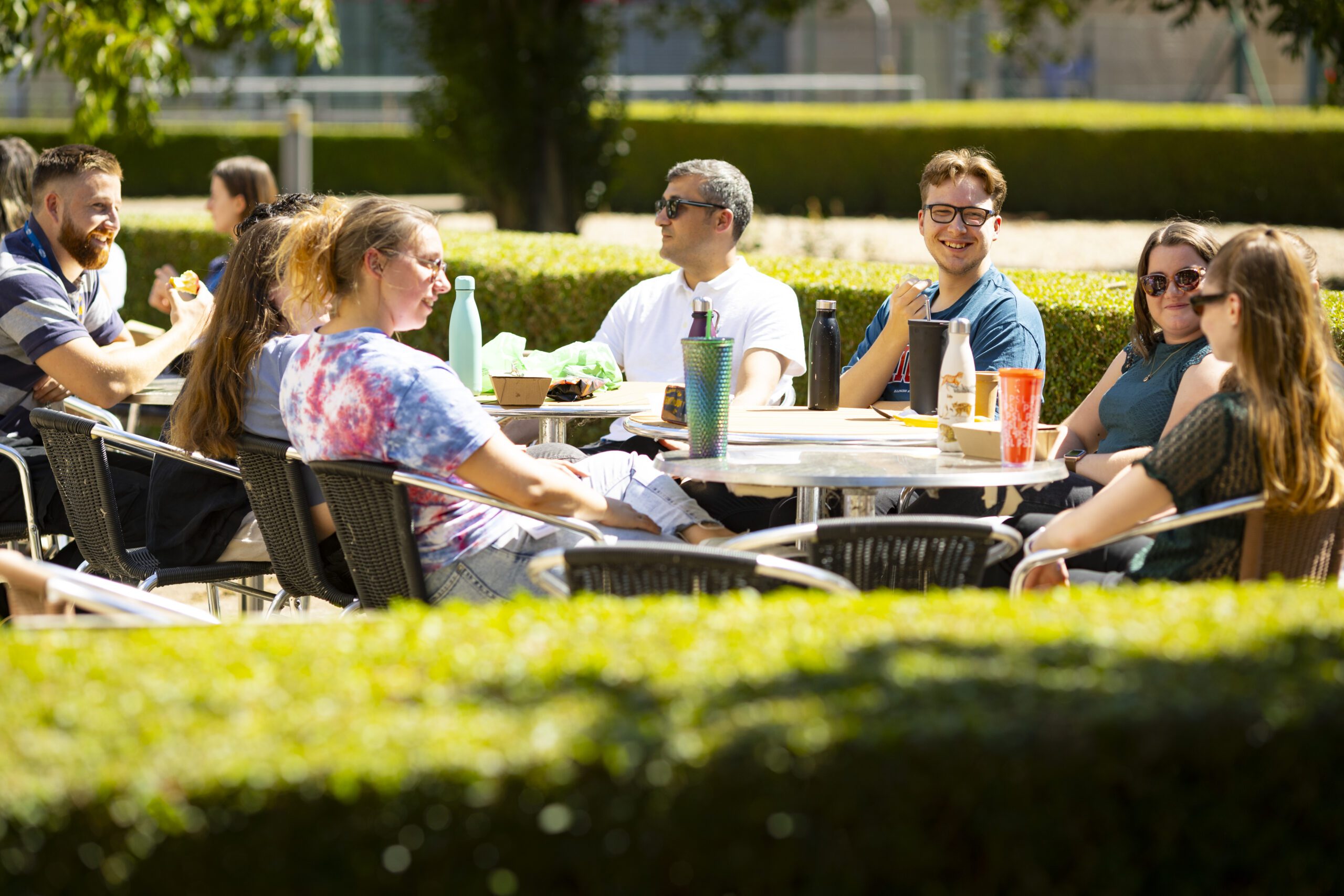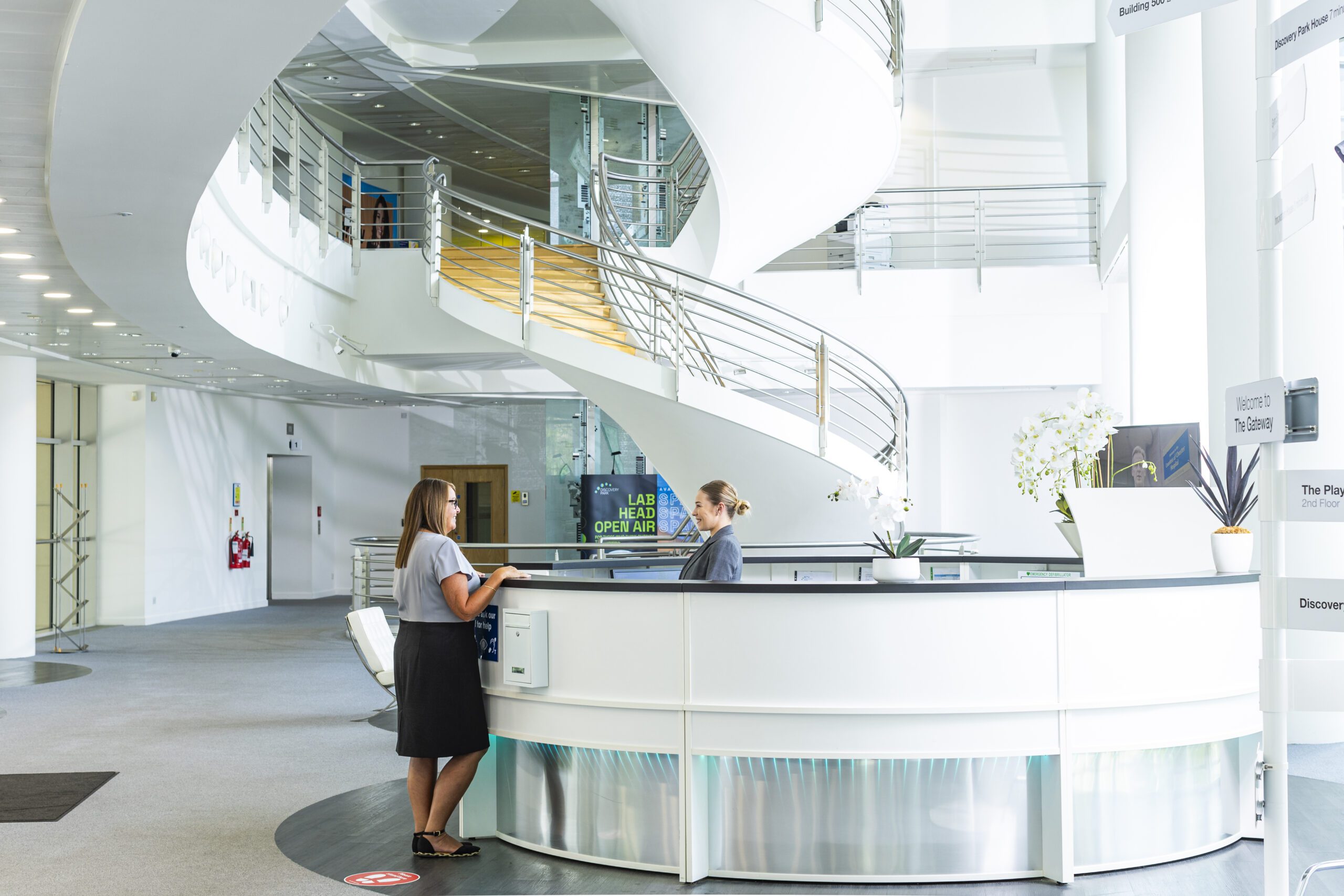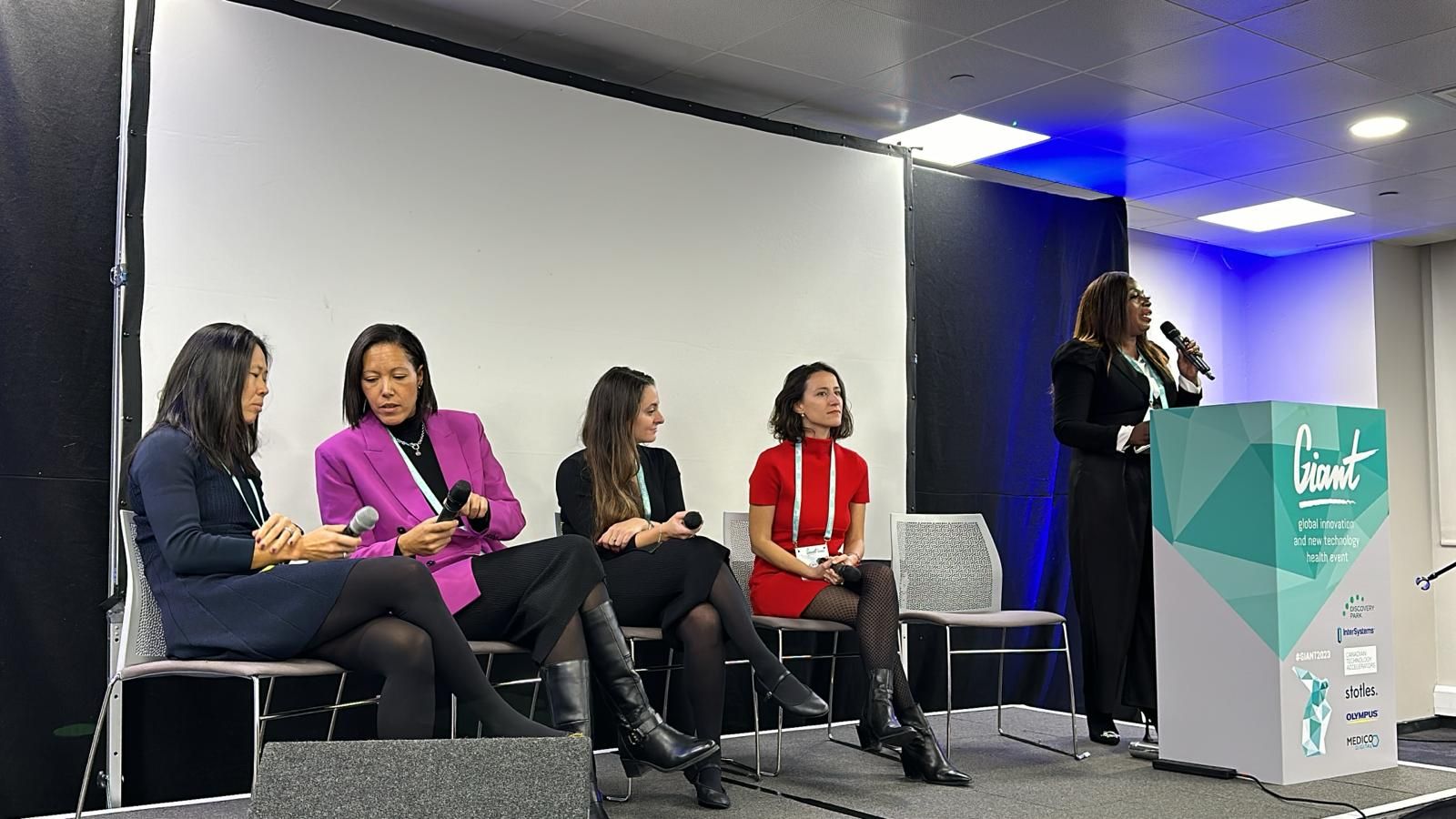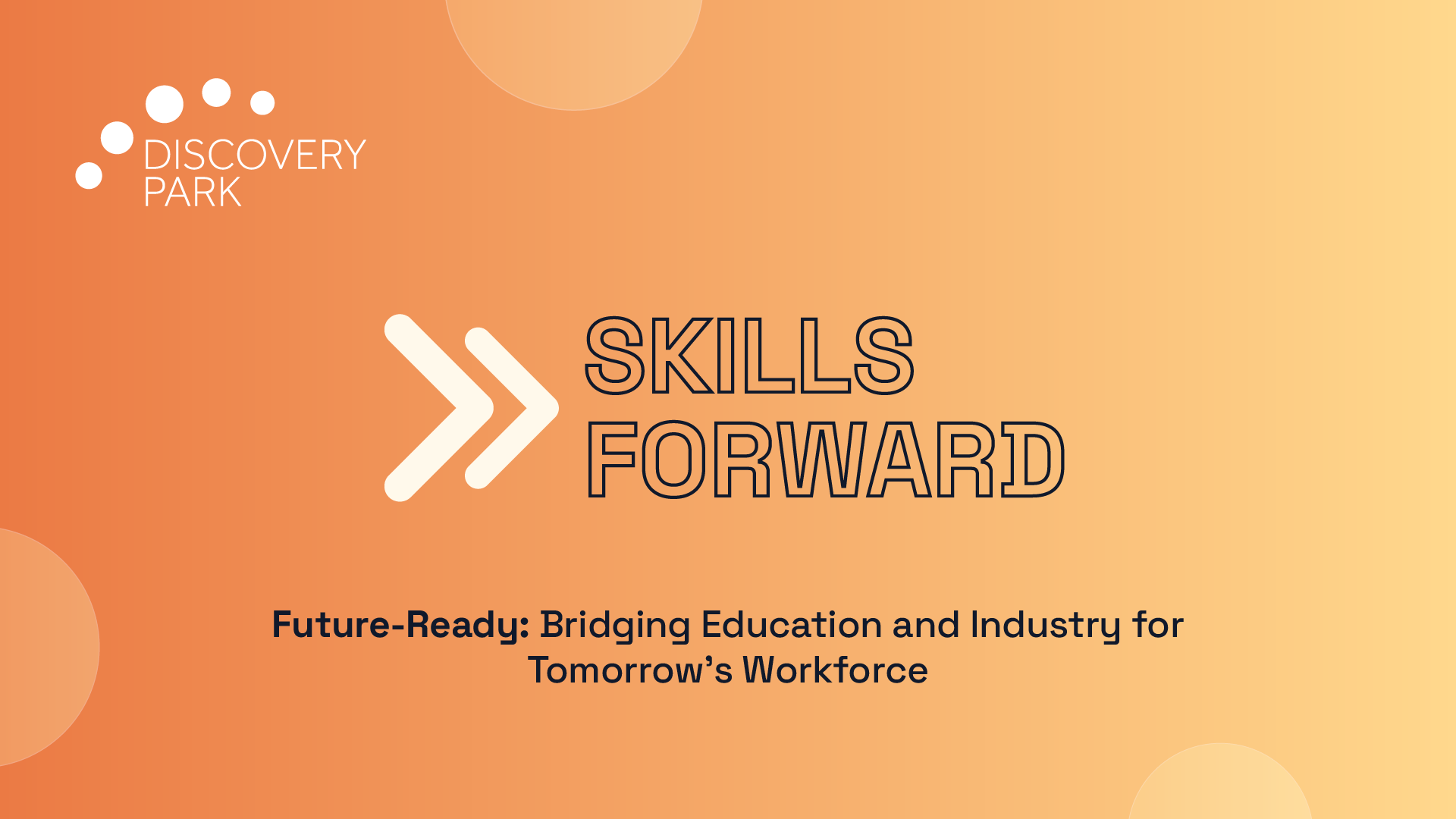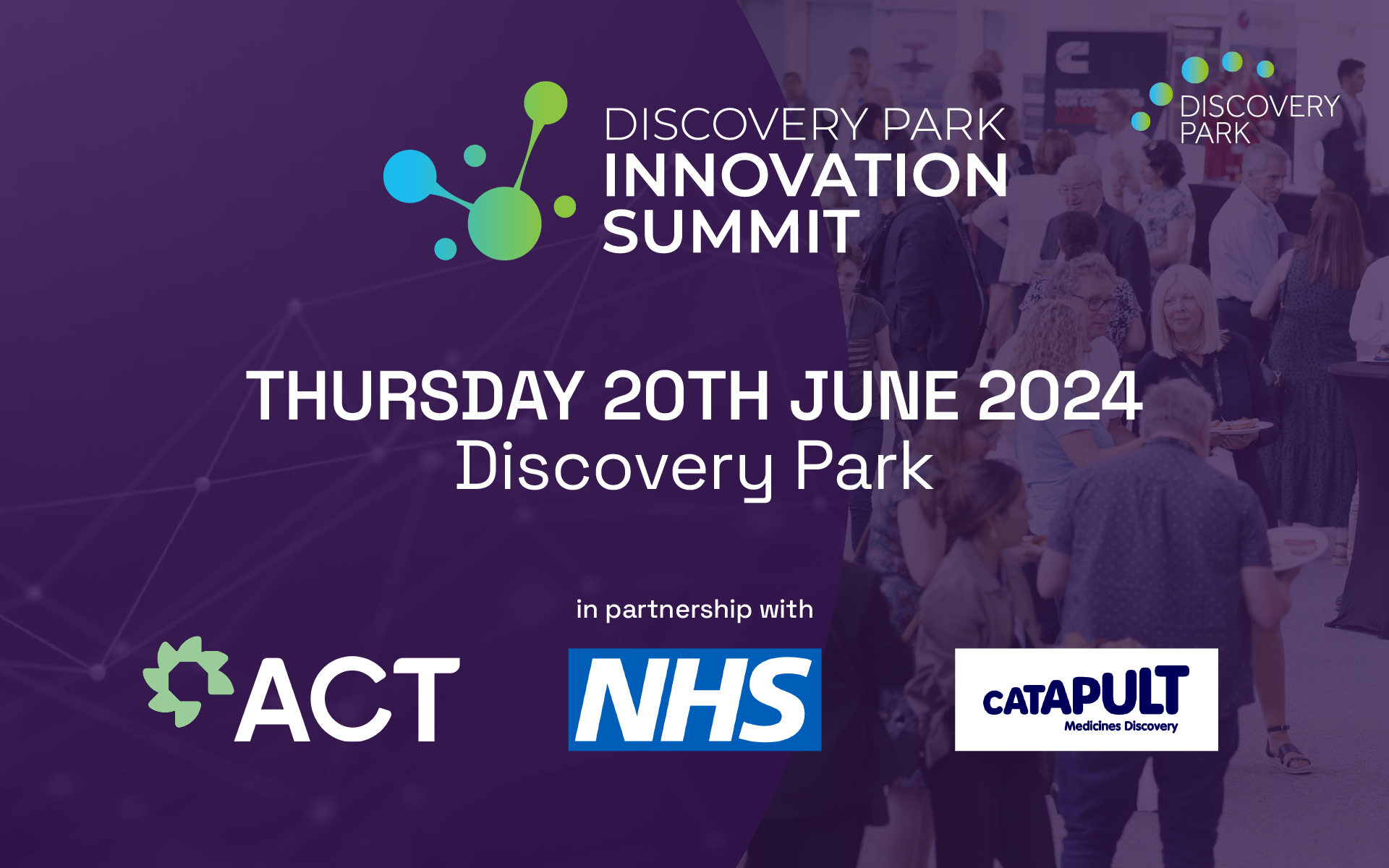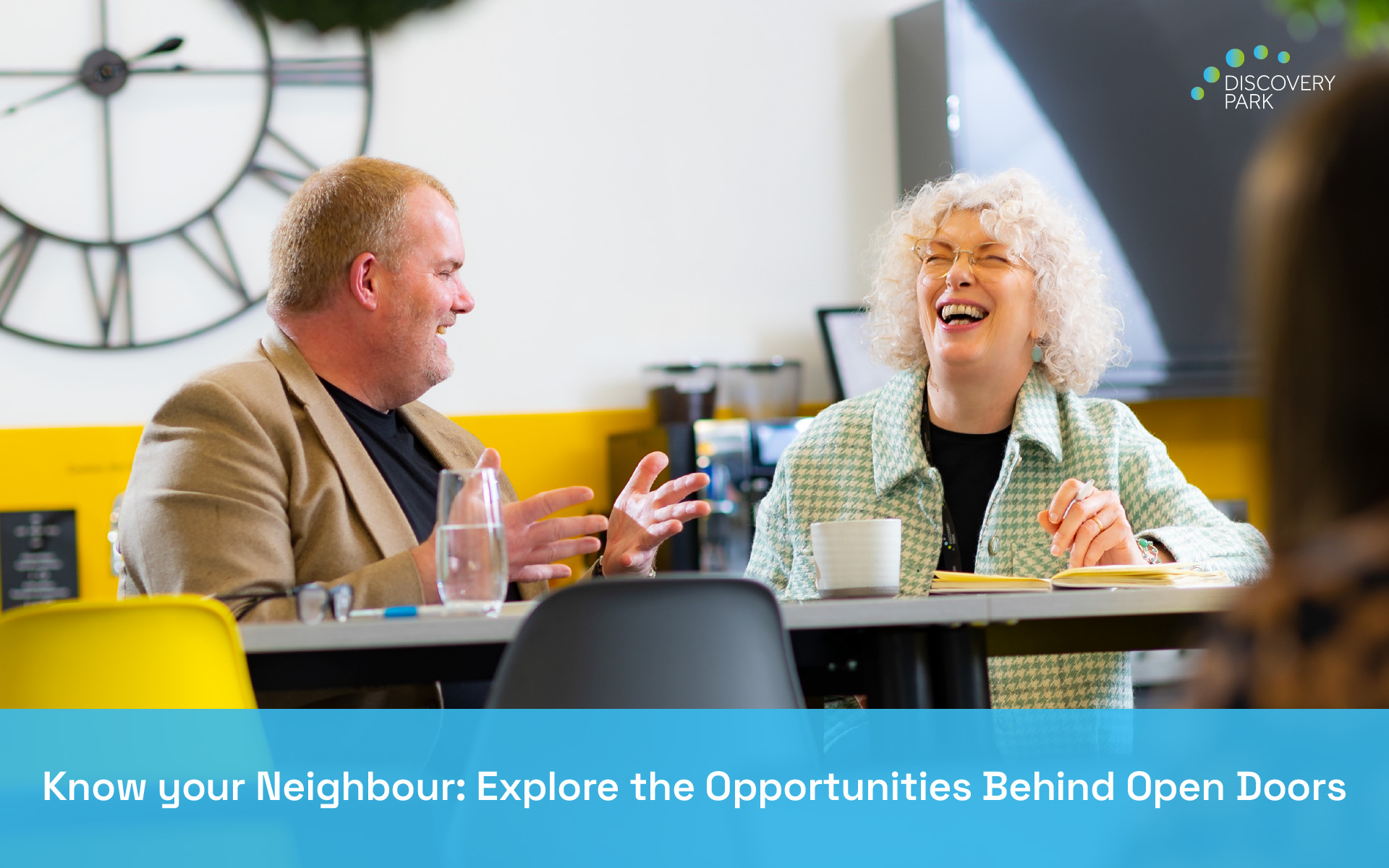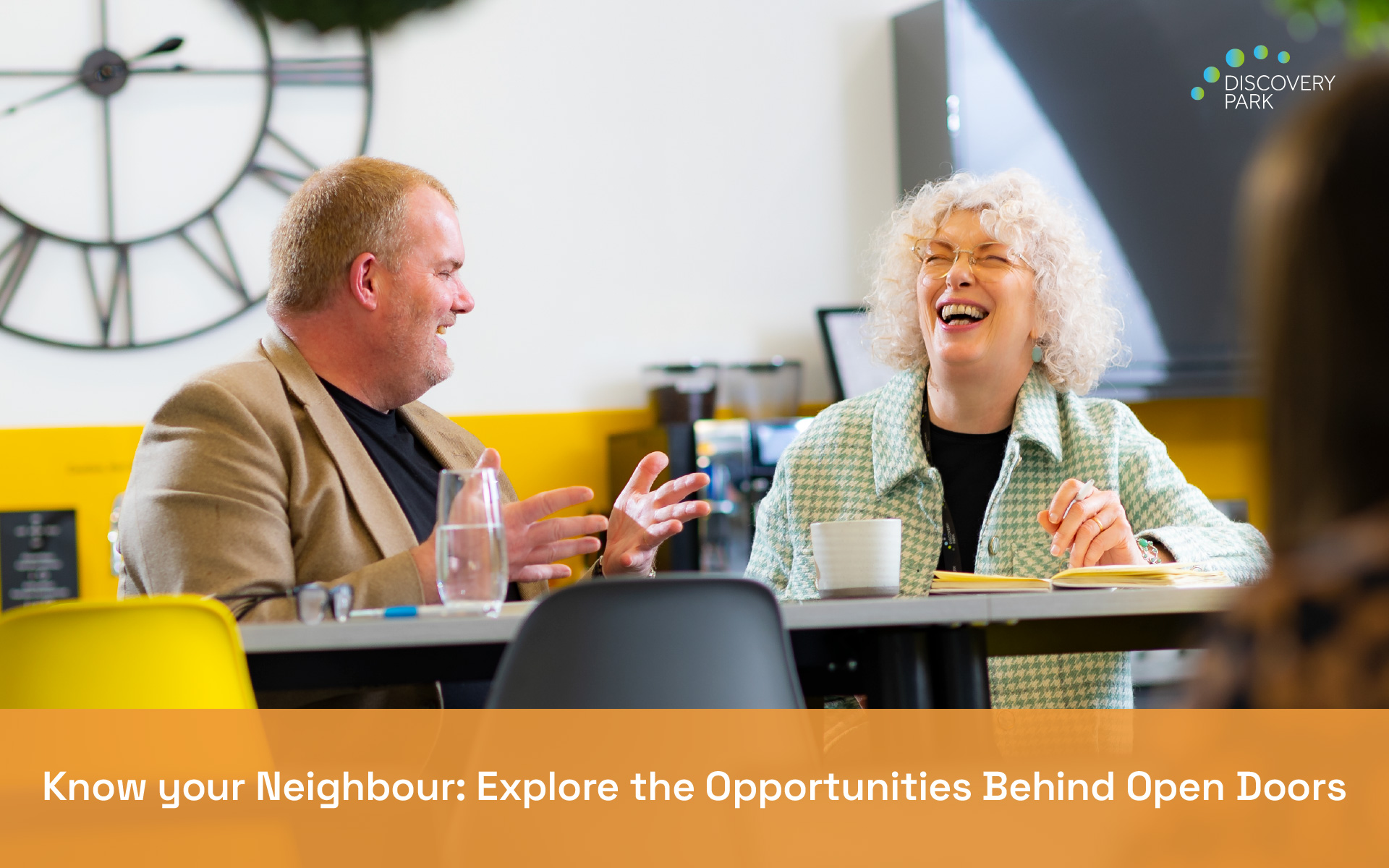Women’s health has historically faced challenges and disparities, with issues often overlooked across all sectors. Not only with regards to conditions solely affecting women, but also understanding the different physiological responses that women have in areas such as cardiac disease and immune responses. It is also known that women use health technology differently to men, presenting clear opportunities to deliver measurable health benefits to over half of the population, as well as a huge market opportunity for businesses to target.
Femtech and women’s health innovation are increasingly growing areas, however there is a risk that the promise of these areas is not realised without recognising the challenges that remain. Dr MaryAnn Ferreux, Medical Director at Health Innovation Kent Surrey Sussex (HIKSS), and Melissa Ream, Specialist Commercial Advisor, HIKSS, share their perspectives on the potential opportunities in femtech and women’s health, and how we can work together to reap the benefits.
What are the major challenges facing women’s health in the UK?
MaryAnn Ferreux – The main challenges in women’s health stem from decades if not centuries of gender bias and discrimination. In the past, many women’s health complaints were attributed to being emotional or hysterical and these gender stereotypes often led to doctors mistreating women’s symptoms as a mental health condition, rather than a physical condition.
While that has changed, much of this inherent gender bias remains, with many clinical trials and research studies not assessing the impact on women.1 We have recognised that there is a gender-based data gap but now we need to overcome this. Data sets are very rarely analysed by gender, and yet it is almost universally recorded, so the disparities in how genders respond in different disease groups could and should be analysed routinely.
Melissa Ream – We often think about women’s health in terms of women’s conditions, be that menstrual health, maternity or menopause. But women’s health care is general health care too. The cardiac symptoms and risks for women are different to men, yet these are not widely known. And this comes down to under representation of women in data sets as well as unconscious bias in the wider world. If you search for images of people having a heart attack on Google, most of the images will be of men. Cardiovascular disease in women is a bigger killer than breast cancer2 and we need to start taking this more seriously, looking at how our clinical services are designed, delivered and promoted.
MaryAnn, you mentioned data sets. Do you think AI has the power to change this or do these concerns remain?
MaryAnn Ferreux – AI has a lot of potential to improve the health experiences of women, but there is a risk of building in more inequality if we do not address gender bias in data sets. More and more innovators are wanting to use AI in their technologies but some of them are not thinking about bias until it’s too late. A global analysis of AI systems found that 44% demonstrated a gender bias.3 We need to ensure that the data sets used are comprehensively analysed and shown to be relevant to the target population and this comes down to the decision makers asking the right questions, whether that’s innovators, regulators, funders or purchasers. I’m also concerned about a lack of leadership in AI regulation and who is at the decision-making table. Without diversity at that top level, it is unlikely that the right questions will be asked early enough – retrofitting later on just won’t work!
Learning from experience presents a huge opportunity, but one that we haven’t been previously good at. As an example, a lack of ethnicity data incorporated into skin algorithms resulted racial bias in pulse oximetry, ensuring that the device was not as effective for black and ethnic minority people.4 This disparity has been observed since the 90s5 and yet the device was still used during the Covid-19 pandemic, resulting in worse outcomes for black and ethnic minority people. We didn’t address the problem when we had the chance, and we need to ensure this doesn’t happen again.
So, what do we need to do to support equality in healthcare?
Melissa Ream – As MaryAnn says, having people at the decision-making table is vital to ensure that equality is incorporated into our systems. There is still a shortage of women in leadership roles even in the femtech industry and this needs to change, from more women at C-level, to more women investors. With women making up just 22%3 of AI workers, we need active engagement from all sides to help make this change. Role models are a powerful tool; if you can’t look above for inspiration then you’re unlikely to move in that direction. It’s therefore so important that we build networks to support this. Innovation hubs like Discovery Park play a powerful role in this, providing a network to support women in leadership positions and a platform that draws attention to the issues and also to those overcoming them. When we see good practice, let’s talk about it!
MaryAnn Ferreux – To make change happen, we need to use both a stick and a carrot. There must be something built into our structures and processes that sets out expectations and ensures compliance with health equity. But we also need to use financial levers as a carrot, with investors and purchasers demonstrating an interest in this area and making decisions that reflect a commitment to reducing health inequalities.
What would be on your women’s health manifesto to help guide this change?
MaryAnn Ferreux and Melissa Ream – There are three areas to focus on that we believe will see real results:
- Leadership – Women currently make up just 20-25% of leadership in digital, tech and AI.6 This needs to change to reflect the wider population and their health care needs. We also need to promote and support women innovators to enter Femtech and maximise commercial opportunities that improve women’s health.
- Policy and Commissioning – Those determining the focus of our health and care policies need to be inclusive and incorporate diversity requirements, ensure that a wide range of women’s voices are heard, and that commissioning reduces gender health gaps.
- Data sets – Data sets need to reflect their target audience and not exclude minority groups. Existing data sets may not be inclusive, so trials and data sets need to be designed and analysed with this in mind. This also presents an opportunity where having a comprehensive understanding of the data can result in the development of more tailored care including personalised interventions with the potential to reduce health inequalities.
You’re both based in Kent. How important do you think local networks are to support these changes?
Melissa Ream – Change doesn’t exist in a vacuum, it takes work across the entire system, and local hubs are an excellent starting point. By working together locally to understand the problems and bringing together groups to address these problems, we can see real impact. There are important roles for everyone within the industry, from the NHS to individual companies, hubs like Discovery Park and national networks like Barclays Eagle Labs and Health Innovation Networks. If we collaborate, we can make health care more equitable, close the gap and reduce inequalities.
MaryAnn Ferreux – Discovery Park is in an exciting position, embedded in the start-up community but with close links to the NHS and academia, there is opportunity to set a standard and drive this campaign forward. Discovery Park Ventures is already investing in women led femtech companies, and I enjoyed joining the team at Giant Health to discuss the challenges and opportunities in this space.
Discovery Park recently hosted a panel at Giant Health on ‘Unlocking Opportunities in Women’s Healthcare’. The panel was moderated by Sylvia Stevenson, Founder, Absolute Diversity, and featured Dr MaryAnn Ferreux, Medical Director, Health Innovation Kent Surrey Sussex, Lina Chan, Holland & Barrett General Manager Wellness Ventures and CEO, Founder at Parla, Melisa Guven, Associate, Monograph Capital and Karina Vazirova, Co-Founder & CEO, Femtech Lab.
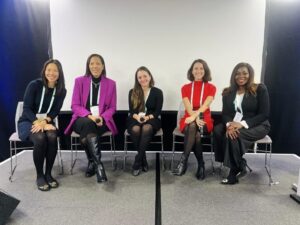
Image (L-R): The Discovery Park panel at Giant Health on ‘Unlocking Opportunities in Women’s Healthcare’ with Lina Chan, Dr MaryAnn Ferreux, Melisa Guven, Karina Vazirova and Sylvia Stevenson.

